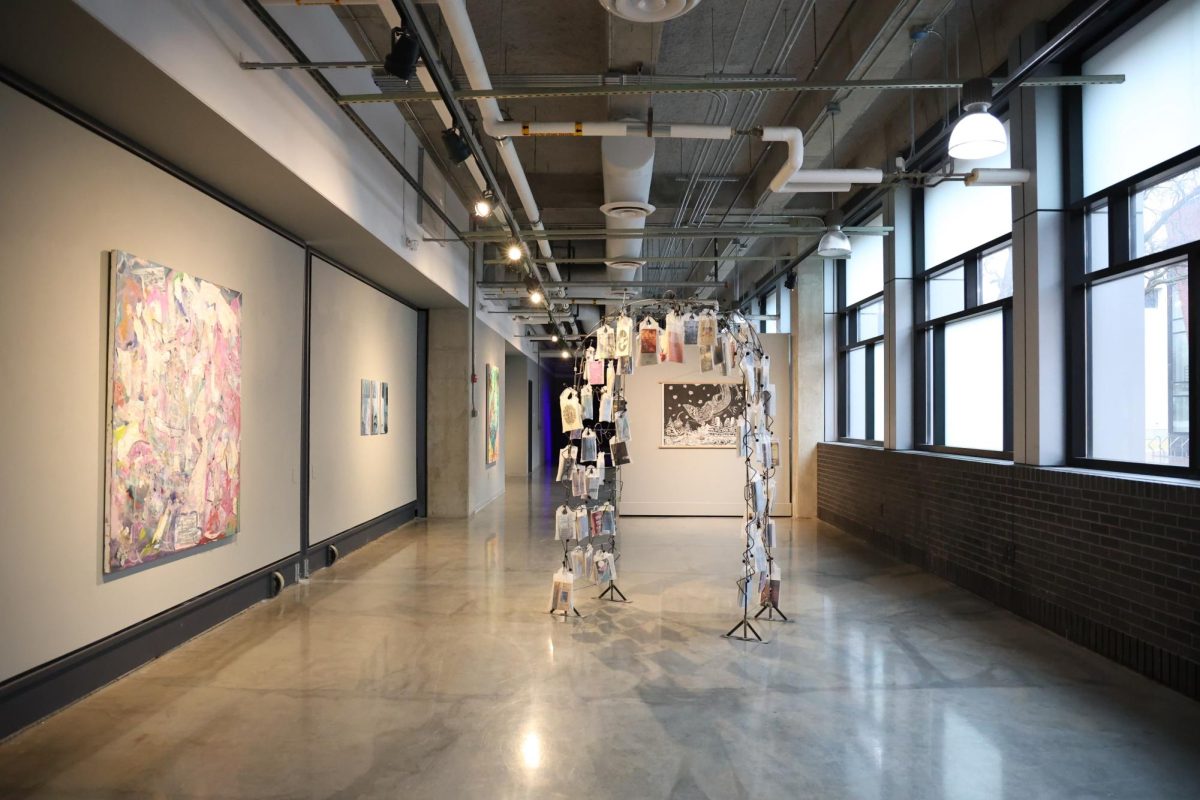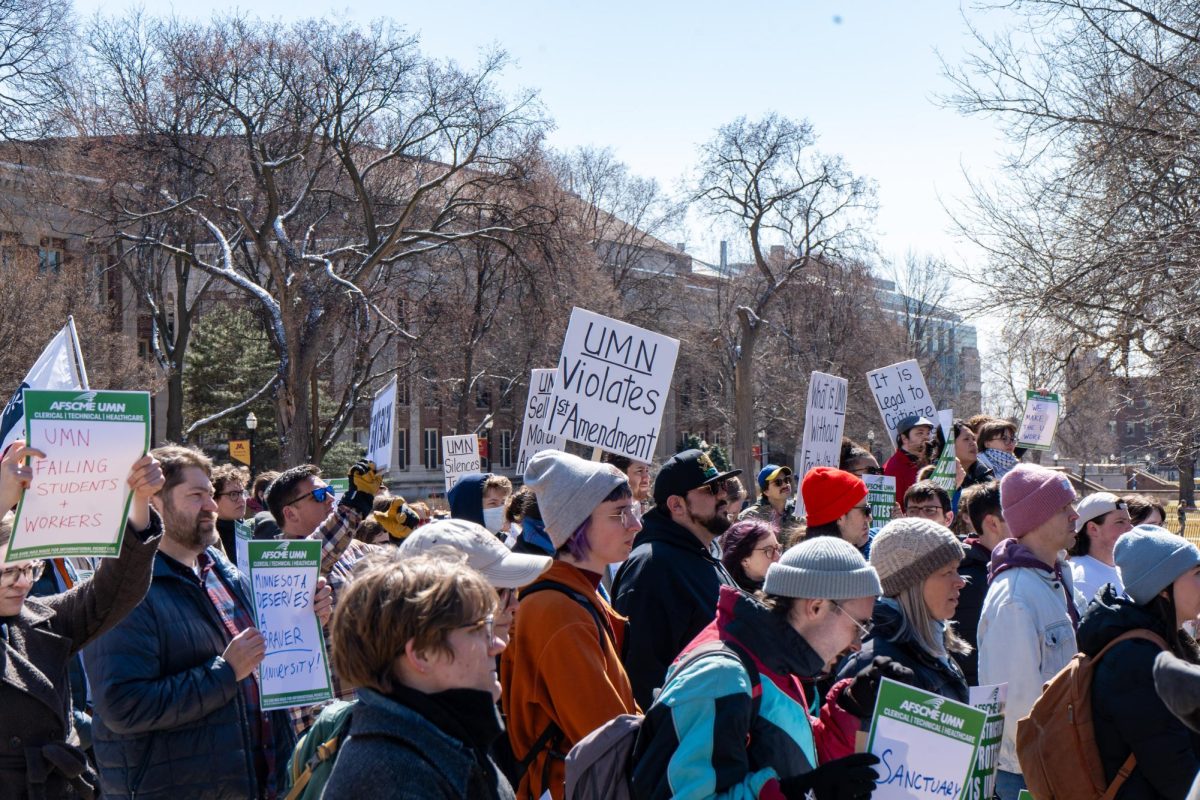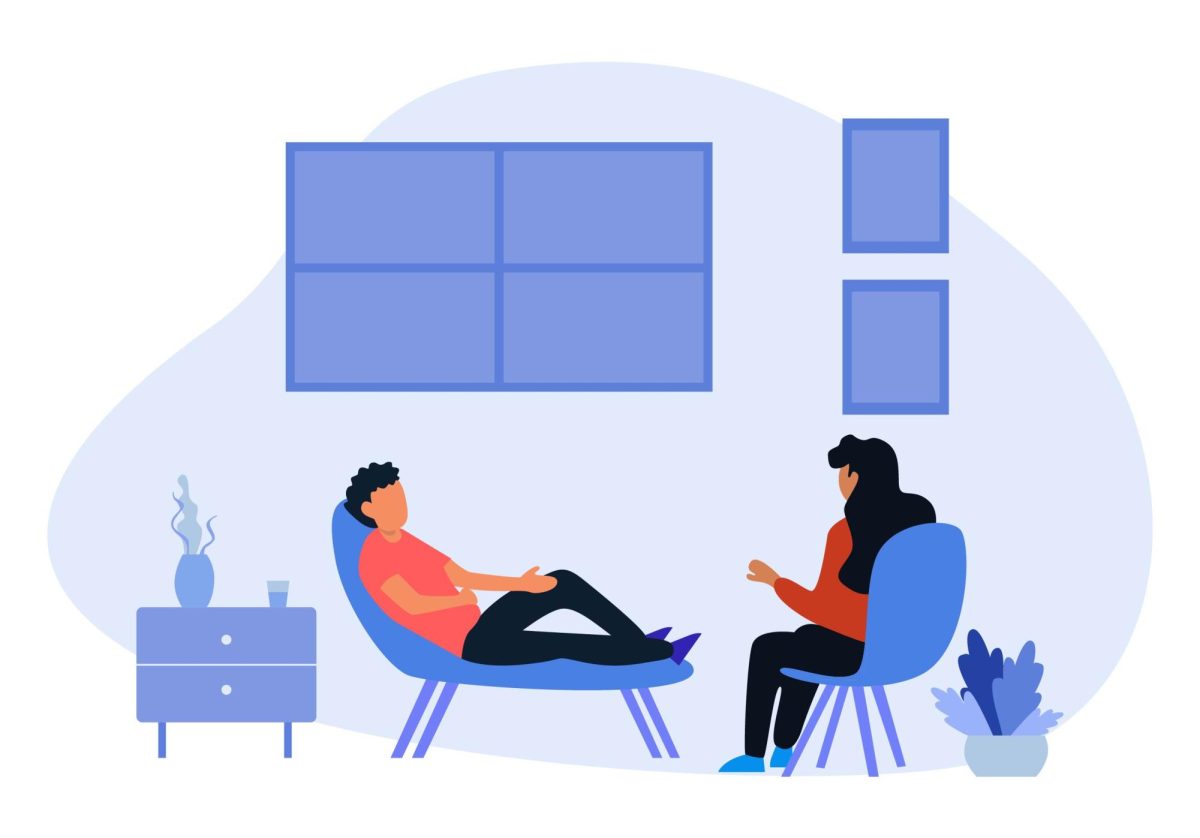Students at the University of Minnesota are concerned about whether the food resources on and around campus meet student demands.
In a 2024 College Student Health Survey conducted by the University, nearly 22% of students said they were worried about whether their food would run out before having money to buy more. At the University, 12% of students reported running out of money to purchase food and reported experiencing a food shortage.
One available resource for students is the Keystone Foodmobile on the University’s St. Paul campus aimed at providing students and families with free groceries including produce, meat and dairy products as well as household items.
The Foodmobile served nearly 1,000 people on the St. Paul campus in 2024, an increase from over 600 people in 2022, according to Keystone’s Director of Basic Needs Georgi Nguyen.
Nguyen said she estimated the cost of each Foodmobile stop to be around $2,000, which accounts for operation, food, staff time and supply costs.
“This trend can be seen across all food programs and all food mobile sites,” Nguyen said. “We’re seeing a lot more usage, we’re seeing more people coming to sites regularly, so the numbers look pretty stable between 2023 and 2024.”
Nguyen said a reason for the increase in Foodmobile users after 2022 can be attributed to the program’s expansion to the St. Paul campus in August 2023, an addition to the initial student-dedicated stop at the Commonwealth Terrace Co-op.
Other food relief programs and colleagues across the state have seen an increase in the overall need for assistance, Nguyen said, citing the end of COVID-19 relief programs and inflation.
Nguyen said the Keystone team does data analysis to ensure the Foodmobile’s efficiency and success.
“We want to be busy, we want the site to be well utilized, and we want it to be accessible for folks,” Nguyen said.
Another food resource on the Minneapolis campus is Free Thursday Meals, a new event that began at the start of the 2024 fall semester.
Every Thursday in Coffman Union, the Nutritious U Food Pantry gives to-go meals to students for free. These meals are provided through a partnership with the Kitchen Coalition, the Campus Club and Swipe Out Hunger.
Graduate student Dylan Bruesehoff said it was his first time going to the event on Thursday. He added he heard of it through some friends in his program.
Bruesehoff said having the to-go meal was useful because it limits the amount of time it takes to prepare food.
“You can just have a meal made, you don’t gotta go out to eat and stuff,” Bruesehoff said. “Feels good, it feels great actually, like free food is tasty as heck.”
Bruesehoff said there is a definite need for more events like the free Thursday meals.
“Looking at campus, so many students don’t have cars, and it’s like a food desert,” Bruesehoff said. “There’s not a lot of cheap, good food that you can get for yourself around here.”
Bruesehoff said he never heard of the Thursday meals before and believes there needs to be more advertising done to make sure more students know about events like this.
“I would have liked to have known about this years ago, maybe even in undergrad,” Bruesehoff said. “They should have a UMN food email that says, ‘Yo, come get your free grub on Thursdays at three p.m.’”
The Nutritious U Food Pantry serves approximately 1,800 students a month, which is up from approximately 1,400 students per month last year, according to Boynton Health Assistant Director of Marketing and Communications Matt Tveter.
One campus group that works with food sustainability is the Food Recovery Network (FRN), a student-run chapter of a national organization dedicated to lowering the amount of food waste from the University.
FRN president Priscilla Bunday said the group on average recovers 500 pounds of food a month and has recovered over 2,600 pounds of food over the 2024 fall semester.
“Our primary focus on campus is working with Chartwells, which is the campus dining supplier, so we work with the dining halls directly,” Bunday said. “We also work a lot with Nutritious U as well. They’re the ones directly getting that food to students and when they have excess produce at the end, we take that.”
FRN supplies the excess food from the University to two community organizations — the People Serving People Shelter and Loaves & Fishes, according to Bunday.
Bunday said FRN has been working within a cohort organized by the Undergraduate Student Government (USG), which is focused on environmental and sustainability issues on campus.
USG’s attempt to establish an affordable grocery store on campus is a great idea and could be a project that FRN would support creating, Bunday said.













